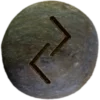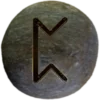Last Updated on October 17, 2024

Berserkers, also known as berserks, were fierce warriors who fought with unparalleled rage and strength. Their name derives from “bear shirts” (Old Norse: berserkr), referring to the animalistic ferocity they embraced in battle. These warriors didn’t wear traditional armor but entered combat in animal pelts, often bear or wolf skins, symbolizing their connection to the primal forces of nature. Other variations of their name include “berserks,” which were sometimes spelled differently in ancient texts.
Berserkers served Odin, the Allfather, and were driven by divine fury. They entered an uncontrollable battle rage called berserkergang, where their strength and aggression became superhuman. In this state, they could not distinguish between friend or foe, destroying everything in their path. This rage made them nearly invulnerable to pain, fear, and even weapons, earning them a legendary reputation. Tales of berserkers recount their ability to bite through shields, tear enemies apart with their hands, and continue fighting even after sustaining grievous injuries.
This ferocity came from deep spiritual and physical preparation. Many berserkers believed in transforming into their animal totem, often a bear or wolf. They channeled the strength and cunning of these beasts, creating a mental and physical unity that propelled them to victory. Their animal skins, or “bear shirts,” symbolized this transformation, which is why the term berserkr connects to both the ferocity and the pelts they wore.
Berserkers and the Elder Futhark
Berserkers were warriors who valued strength and victory, so their connection to the Elder Futhark rune Ūruz is significant. Ūruz, symbolizing primal strength, endurance, and power, aligns perfectly with the berserker’s spirit. This rune embodies the raw, untamed energy that berserkers unleashed on the battlefield. Ūruz often represents the power of wild animals, which the berserkers emulated during their furious charges.
Berserkers also held mystical beliefs regarding fate, often relying on the guidance of runes and omens. As warriors of Odin, they trusted that their destiny would lead them to victory or a glorious death in battle, sending them to Valhalla. Berserkergang not only unlocked physical power but also connected the berserker with the divine, allowing them to fight with the might of gods coursing through their veins.
After battle, when their frenzy subsided, berserkers faced exhaustion and emotional turmoil. Some sources mention the emotional toll this wild state took on them, leaving them vulnerable and in need of care from others in their tribe. However, in battle, they remained feared, respected, and nearly unstoppable forces, their rage and loyalty to Odin forever marking them as symbols of divine warrior strength.


